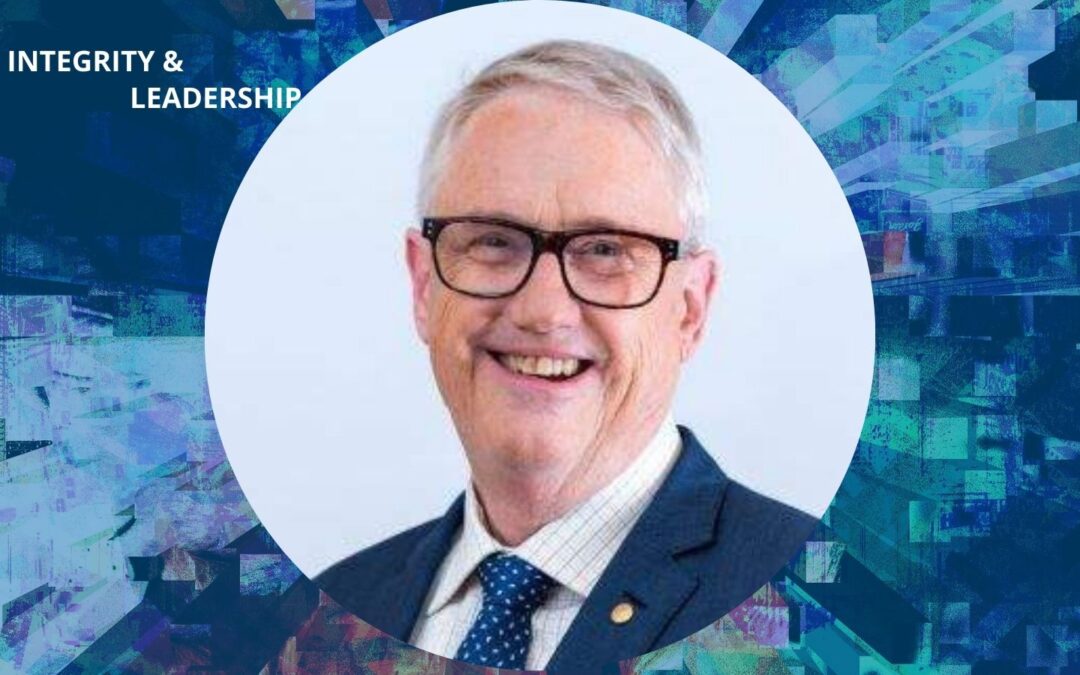How do we combat and condemn bribery, while promoting ethics, integrity and transparency during times of corruption and conflict? This is the question FIDIC president Tony Barry attempted to answer for an international audience.
Tony Barry has set out the need to tackle corruption which costs the world an estimated $3.6tn around the world each year in bribes and stolen money. To do so, he warned that “poor choices by governments, suppliers, providers and individuals” have all played their part.
Calling on all participants and stakeholders “to act with integrity including all aspects of honour, honesty, ethics, decency, truthfulness, empathy and trust”, Mr Barry told attendees at a special FIDIC event on the subject that “Leading with integrity is everybody’s responsibility. Make a personal decision to behave and lead with integrity. Make organisational policies and decisions to reject corruption and act with integrity. Make management decisions to never do business with those who are corrupt. Celebrate and enjoy the consequences and reputation of behaving with integrity.”
“reduce the opportunities for corrupt individuals to take a better future from our communities and their people.” Tony Barry
FIDIC, an international body representing the infrastructure sector, has a long-standing objective to combat and condemn bribery and corruption, and to promote ethics, integrity and transparency in its industry. Its president stressed this is a matter of practicality as well as principle, explaining: “Corruption jeopardises and harms our ability to achieve the UN Sustainable Development Goals.”
Mr Barry described how corrupt conduct inappropriately influences planning and development decisions, how quality is compromised, funds misallocated, and resources diverted – “disadvantaging communities and particularly depriving poorer communities of essential hospitals, schools and other essential social infrastructure”.
He then turned to everyone’s responsibilities in tackling corruption.
Effective governance
“At FIDIC, we encourage companies in our industry to focus on effective governance to fight corruption,” he said. “This includes:
Values, policies and preferred behaviours clearly defined and communicated,
Strategic choices, decisions and processes made transparently and honestly,
Effective governance by board and executives – due diligence,
Boards and management with the knowledge, skills, courage and commitment to build a culture focussed on integrity,
Systems to drive and enforce integrity compliance.”
Leadership action
Mr Barry also stressed that leaders must take action for themselves too, saying: “From a corporate leadership perspective, we encourage our industry to ensure:
Leadership has the self-awareness and courage to behave, act and demonstrate the preferred values and behaviours,
Leadership clearly communicates integrity policy and practice to shareholders, stakeholders, partners, clients and staff,
A culture built on an appreciation for people, community and achievement of excellence with intolerance for corruption,
Professional development and training which celebrates values, integrity and reputation.”
Individual responsibility
Turning to the role of individuals, he explained: “We ask that you strive to lead with integrity:
Manage relationships effectively – be very clear what you will not do,
Never encourage, walk past or tolerate corruption – zero tolerance,
Step away – you keep your integrity; stay in – you lose it,
Something is never for nothing – be aware,
Corruption can be sophisticated, complex and covert,
Be open when your people approach you concerned to talk,
Be aware others will try to corrupt your staff with a soft start,
Know serious corruption is very serious and it can be hidden,
Share stories with staff to help them understand how to maintain their personal integrity and that of your organisation,
Encourage and support staff to report integrity risks through confidential channels to legal counsel.”
The right processes
And with regards to achieving integrity in transactions, he said “we encourage companies to:
Set up processes to maintain integrity in planning, procurement, contracting and payment,
Establish and actively manage compliance frameworks,
Delegate authority and separate duties,
Walk away from deals or projects where a bribe or personal favour is sought,
Report corruption, seek help where you need to.”
Mr Barry concluded the by promising that FIDIC will “continue to advocate against bribery and corruption and work with our industry and stakeholders to reduce the opportunities for corrupt individuals to take a better future from our communities and their people.”
The FIDIC President was speaking at “Integrity in infrastructure delivery during times of corruption and conflict” a special webinar by their integrity management committee, which has developed a suite of integrity management documents to help companies around the world.
The post Tony Barry – Corruption is an integrity and leadership challenge appeared first on Infrastructure Global.

